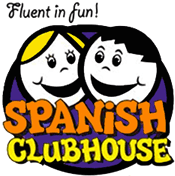1. In Spanish, question and exclamation sentences begin with inverted punctuation. For example, ¿cómo estás?, has an inverted question mark at the beginning and a question mark at the end. While an exclamatory sentence like “¡muy bien!” follows the same rule except with exclamation points. The use of inverted punctuation does not exist in any other language except a few other minority languages in Spain.
2. There are around 30,500 words that contain all vowels (a,e,i,o,u) in Spanish. For example: “murciélago” which means “bat” in English uses all of the vowels. (https://takelessons.com/blog/language-of-Spain-z03). For comparison, there are just under 4,000 English words that use all of the vowels. (http://walkerroyce.com/blog/observation/how-many-words-contain-all-5-vowels/)
3. 8% of Spanish words have an Arabic origin (https://takelessons.com/blog/language-of-Spain-z03)
4. There are some words that can’t be directly translated to English in one word. For example, the word Empalagar roughly translates to feeling sick because of too much sweetness in food.
5. Many English words have been adapted to Spanish in the 20th century. For example, sueter, futbol, pulover, tweet, internet, hacker and jazz are all English words that have been adopted into daily Spanish vocabulary. (https://www.fluentu.com/blog/spanish/english-words-used-in-spanish/)
6. Speaking of words that are similar in English and Spanish, the number of Spanish/English cognates is around 40%. Cognates are words that have a similar origin and often have very similar letters and meanings. Some cognates include, actor, animal, cáncer, chocolate and plaza. (http://www.waunakee.k12.wi.us/newsfile18985_1.pdf) (https://www.realfastspanish.com/vocabulary/spanish-cognates)
7. There are also false cognates or words that sound similar in both languages but don’t have the same meaning or origin. Examples of false cognates include embarazada which sounds like embarrassed but actually means pregnant or carpeta which sounds like carpet but means binder or éxito which sounds like exit but really means success.

